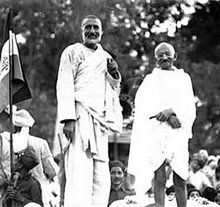Medieval Muslim Jurists divided the world into two competing spheres:
Dar al-Harb (the Abode of War) and
Dar as-Salaam (the Abode of Peace). This division reflected prevailing ideologies and their geographical coordinates. The goal of
jihad (literally, "struggle") was to extend the borders of
Dar as-Salaam until the entire world would become the Abode of Peace. Violent means to this end were both accepted and contemplated--but the term
jihad did not then (and does not now) reduce to mere violence. There is, for example, a saying attributed to the Prophet Muhammad that the
jihad most pleasing in the sight of God (
afdal jihad) occurs when one person tells the truth to another person who has power over him or her--or, as we would say today, "speaking truth to power." What is more, the Medieval Muslim Jurists worked out a theory of "Just War" based upon the Qur'an and Prophetic sayings. It was never "anything goes" in warfare; the struggle for the Abode of Peace could not be accomplished unjustly. The Jurists well understood the concept of "No justice, no peace."
It is always interesting to me to observe how many Muslims and non-Muslims today embrace a reductive caricature of a complex and nuanced tradition. The time has come--indeed, is long overdue--for non-Muslims to recognize the degree to which the Medieval Muslim Jurists were, by the standards of their time, quite "progressive" in their notions of humaneness in the midst of conflict. The time has also come--indeed, is long overdue--for Muslims to recognize that Muslim jurisprudence is not a completed project because history is not a completed project.
By my calculations, the Medieval world began to evanesce among Europeans sometime around the 16th century CE. Medievalism's evanescence has spread from the European peninsula to all parts of the world ever since. Unfortunately, it was exported by Europeans to Muslim majority populations (what the world historian Marshall Hodgson called "Islamdom") largely through violence. In Juristic terms, the borders of
Dar al-Harb were extended deep into territories that had previously been Abodes of Peace (Salaam/Peace/Islam).
We are currently experiencing "blowback" from that exportation of violence--though the blowback has been nowhere near proportionate to the original violence that Europeans visited upon Muslims the first time around nor has it been anywhere near proportionate to the violence that the Anglo-American Crusades begun in 2003 under the American Christian "War President" have visited upon Muslims. The problem that Muslims and Muslim Jurists must take up again is the means by which to begin the slow process of converting
Dar al-Harb into
Dar-as-Salaam. Will Muslims discover--as many of their Christian and Jewish counterparts clearly have not--that violence only begets violence? Will they think through the problem to the discovery that it is a contradiction in terms to create
salaam by violent means? This lesson was learned by the Quakers and the Anabaptists during the formative years of their movements--quite violent years, a fact which seems to have dropped out of the narrative but which is documented in histories of the Protestant Reformation.
The equation that has to be reached is between injustice and violence. Doing violence to another human being is in every case the perpetration of injustice (
thulm in Qur'anic terms). Once this equation is reached, it then must become the guiding principle of all resistance to injustice.
Ghaffar Khan did the math; he figured it out; he developed a program for "militant" pacifism. We must study his philosophy and his methods.










